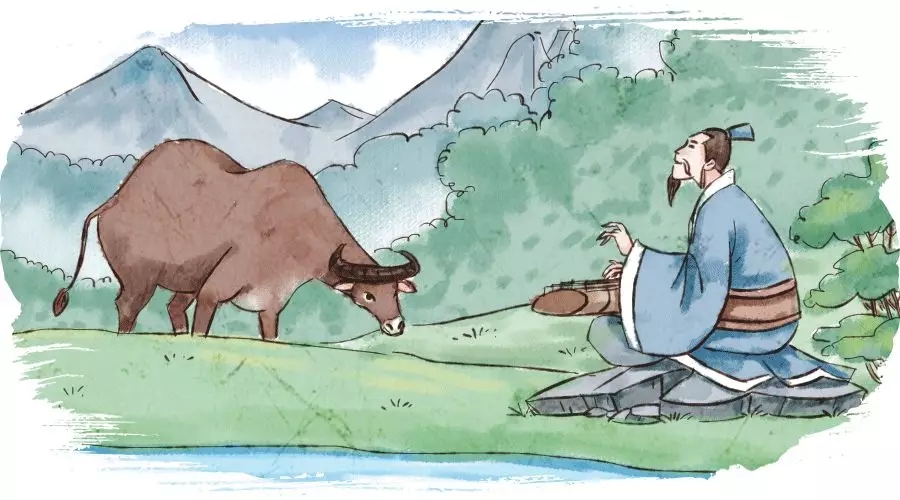对 duì 牛 niú 弹 tán 琴 qín
English Translation
lit.: to play the zither to a cow
fig.: to address the wrong audience, to talk over somebody's head, english equivalent: to cast pearls before swine
Breaking it down
- 对: for
- 牛: cow
- 弹琴: to play a string instrument

Source: Google Image Search
Story in Chinese
Classical Chinese
公明仪为牛弹清角之操,伏食如枚。非牛不闻,不合其耳矣。 汉·牟融《理惑论》
Modern Chinese
战国时代,有一个叫公明仪的音乐家,他不仅能作曲还能演奏,而且七弦琴弹得非常好,弹的曲子优美动听,很多人都喜欢听他弹琴,人们很敬重他。 公明仪不但在室内弹琴,遇上好天气,还喜欢带琴到郊外弹奏。有一天,他来到郊外,春风徐徐地吹着,垂柳轻轻地动着,一头黄牛正在草地上低头吃草。 公明仪一时兴致来了,摆上琴,拨动琴弦,就给这头牛弹起了一首十分高雅的乐曲《清角之操》。弹了一阵,老黄牛却无动于衷,仍然一个劲地低头吃草。
Source: baike.baidu.com
Story in English
During the Warring States period, there was a musician named Gong Mingyi, who was able to both play and compose.
He played the zither very well, his pieces sounded wonderfully, and many people loved listening to his music. They all respected him very much
Gong Mingyi not only liked to play indoors, but also liked to take his instruments outside when there was good weather. One day, he came to the suburbs, there was a light spring breeze, moving the willow trees gently, and a cow was eating grass in the field.
Gong Mingyi suddenly felt motivated, took out his zither and began to play for the cow. He played a very elegant piece for the cow. However, after playing for a while, the cow remained completely indifferent, still bowing its head to eat the grass.
Translation by Celine Li
Usage
你给他讲那些高科技理论简直是对牛弹琴!